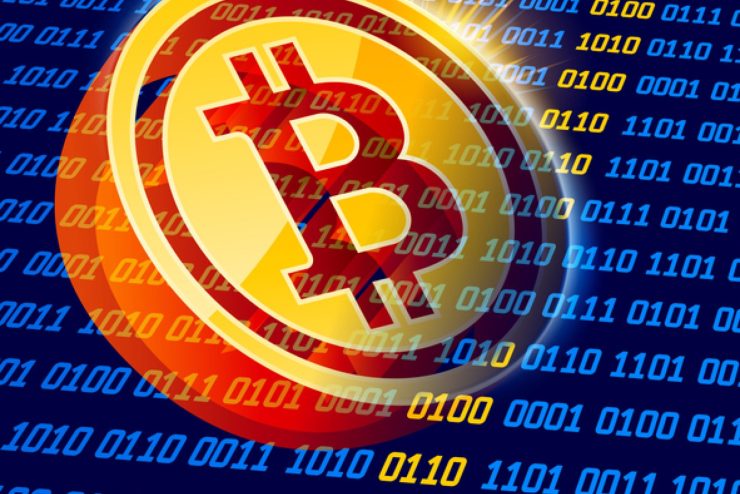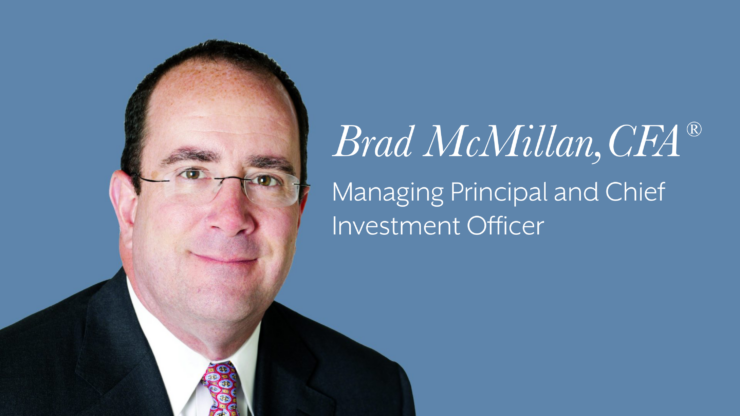The Basics You Need to Know About Bitcoin
February 27, 2019
If you have recently heard about bitcoin and are curious to know more about it, you aren’t alone. Find out answers to questions like:
1. What is bitcoin?
2. Who uses it?
3. Why are so many people interested in bitcoin?
If you have recently heard about bitcoin and are curious to know more about it, you aren’t alone. According to the online search-history analytics tool Google Trends, in November, interest for the term “bitcoin” spiked higher than the term “tax” during the heated tax-reform debates. To help identify why so many people are interested in bitcoin, we will examine what it is, who uses it and why it is so appealing.

What is Bitcoin?
Bitcoin is the first decentralized digital currency (i.e. cryptocurrency) that allows users to send coins through the Internet directly to their intended recipient without going through a financial institution. In other words, it is not a currency that you can physically hold in your hand. Bitcoin can be purchased via digital wallets and sent to other users and retailers with assigned addresses. Bitcoin was first established in 2009, shortly after a nine-page white paper written by the mysterious Satoshi Nakamoto laid the groundwork for digital currencies. While there have been dozens of attempts to “claim” this work, the identity of this person or group remains unknown.
Under the hood, the bitcoin network is a distributed ledger called the “blockchain.” This publicly visible ledger contains every transaction ever processed, allowing computers to verify the validity of each transaction, similarly to the way a bank verifies you have enough funds in your account when making a payment or withdrawal.
A blockchain needs to do two things: Gather and order data into blocks and then chain them together securely using cryptography – the practice of transmitting secure communications. Think of a block that is wrapped in a cryptographic shell. Transactions are time-stamped and recorded with other transactions into a block, and once the block is complete, it gets its own timestamp. Blocks are then sent across the network to be verified by so-called bitcoin miners, which adds the block to the chain. Therefore, a consensus is required for a blockchain transaction to be considered valid, and mines must monitor the blockchain to ensure no one has tried to change it.
To incentivize miners to verify transactions, the miner that is first to authenticate the transaction is then rewarded with newly created bitcoin called a “block reward.” Anyone can be a miner, but it requires a powerful computer that has the appropriate hardware to solve complex puzzles. Some analysts are concerned that the energy requirements to mine for bitcoins will be not be sustainable as solutions become more and more complex.
Who uses Bitcoin?
In its early years, bitcoins were used heavily on the black market due to its relative anonymity. More recently, there have been fewer thefts from bitcoin exchanges and several financial and technology companies are showing interest in the underlying technology of bitcoin. However, there are still occurrences of bitcoins being stolen from digital wallets. Per CNBC, the most recent hack took place this month, where hackers successfully got away with $68 million worth of bitcoin on the cryptocurrency mining platform NiceHash.
But today, more than 350,000 bitcoin transactions occur daily, and its market capitalization of more than $250 billion makes it the largest cryptocurrency in the world. Despite significant growth since its creation more than eight years ago, only a few retailers accept bitcoins as payment. Overstock.com was the first large online retailer to accept bitcoin in 2014 and the online travel agency Expedia followed shortly thereafter; however, few others have followed. Recent adoption of bitcoin has mainly been from private investors speculating on its future value.
Moving forward, it will be interesting to see how governments and regulators respond to bitcoin and other cryptocurrencies. Recent remarks from one Federal Reserve member indicates the possibility that the Central Bank may consider a cryptocurrency of their own one day. It was also recently reported that Coinbase, the world’s largest bitcoin exchange, was ordered by the IRS to provide records for all users who have bought, sold, sent or received more than $20,000 from 2013 to 2015.
Why is Bitcoin appealing?
One of the greatest appeals of bitcoin is the blockchain technology that it is built on. Blockchain has broad applications beyond bitcoin thanks to the use of a distributed public ledger that allows for a transparent and trusted system. It is quickly and easily accessible and is particularly good at two applications: Exchange of ownership and verification.
Another feature of bitcoin that some find appealing is the fact that there is a limited number of coins that can be created. Unlike fiat money that can be printed on demand, there are only 21 million bitcoins that can ever be mined, which makes the money supply predictable and independent of human decisions. Similar to the limited supply of gold, some predict bitcoin will act as a store of value should a severe economic downturn occur and could potentially act as a global currency.
In conclusion, bitcoin and its underlying blockchain technology appear to be here to stay, although it is anyone’s guess what the price of one coin will be worth a year from now. Adding another dimension to its volatile price movements, derivatives markets now offer bitcoin futures, which allows institutional investors a greater opportunity to either buy or sell contracts based on its price. This will mark the first chance investors have to effectively bet against the price of bitcoin.
*This article is intended strictly for educational purposes only and is not a recommendation for or against cryptocurrency.
Let the Certified Financial Planner® professionals at Williams Asset Management help with your wealth management needs. Whether you need comprehensive and holistic financial planning or investment management, we can help! We are fee-based, independent financial advisors located in Columbia, the heart of Howard County, Maryland. Schedule your complimentary consultation today by calling (410) 740-0220!


